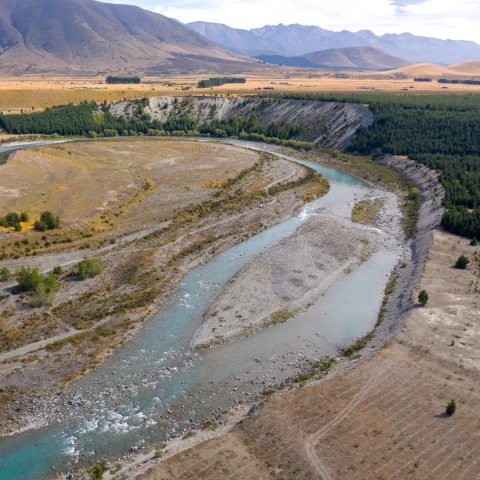Braided rivers are rare ecosystems supporting a diverse and often unique range of flora and fauna. In New Zealand these river systems are poorly understood, and many birds, fish and invertebrates reliant on the rivers are under threat from declining water quality, introduced predators and habitat loss.
What has it achieved?
Project River Recovery is the largest and longest running programme of its kind in New Zealand.
The project runs an extensive weed eradication program over 35,000 hectares of near pristine river habitat, and conducts research into braided river ecosystems. A 100 acre wetland has been constructed, and education programs are run for school and university students to increase their understanding of these unique natural environments.
Predator control has also been an important component of the project. Hedgehogs, stoats, ferrets and feral cats have been found to have a devastating impact on ground-nesting wading birds. A trapping programme is in place to remove these introduced predators, which also targets possums and weasels.
Birdlife in the area has benefited significantly from these programs, with banded dotterels, black front terns, and wrybills successfully hatching and rearing a greater number of young.
A large amount of research has been conducted during the project’s 20 year history, including unique large scale surveys of braided river plant communities, predators, invasive weeds, and bird reproduction. A recent Landcare Research Ltd review of Project River Recovery found that the 20 year programme has been a highly effective braided river restoration project.
Who is involved?
Project River Recovery is funded by Meridian and more recently Genesis Energy, and implemented by the Department of Conservation. Local District Councils and iwi have also been involved, along with a number of landholders, schools, universities, independent researchers, Land Information New Zealand and Environment Canterbury.
Project River Recovery Annual Report
